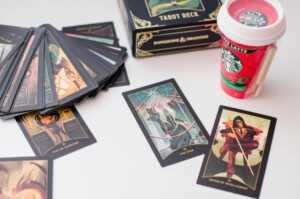Have you noticed that a ton of Autistics love to play D&D? It’s no illusion.
A disproportionately high percentage of D&D enthusiasts are on the Spectrum.
Dungeons & Dragons is more than just a popular role-playing game; research in 2024 suggests it might also be a game-changer for people with Autism Spectrum Disorder.
According to the study published in the journal Autism, D&D can offer significant benefits for autistic individuals by providing a unique space for social interaction and personal growth.
The study from the University of Plymouth, Edge Hill University, and Dalarna University in Sweden, focused on autistic adults who played Dungeons & Dragons in small groups over a six-week period.
The researchers wanted to see if this game, with its rich world-building and cooperative gameplay, could help autistic people feel more comfortable and engaged in social settings.
Participants began with a brief introduction to the game and then participated in guided scenarios led by a game master.
After the sessions, they were interviewed about how their experiences with D&D interacted with their autism and how the game affected their daily lives.
Why So Many Autistics Play D&D
Many reported that the game allowed them to express themselves more freely and comfortably than they might in typical social situations.
Players talked about their struggles with communication and self-confidence in everyday interactions, often leading them to mask (conceal) their autistic traits.
However, within the game, they found a welcoming environment where they could relax and be themselves.
This safe space brought on a sense of connection with others and made it easier for them to engage and contribute to group discussions.
Participants also noted that the positive experiences and traits that they developed through their characters began to influence their real-world self-perception.
They felt more confident and included in a group, both within the game and in their daily interactions.
The Proof Is in the Pudding
I was clinically diagnosed with ASD in 2022 – in middle age.
When I was in college, D&D was huge on campus. This game is extremely popular among neurotypicals too.
Though one to two percent of the population is on the Autism Spectrum (according to the CDC), a much higher percentage of D&D players are autistic.
I myself, though, was never drawn to D&D, even though everyone on the campus seemed to be playing it.
However, I totally concur with this study because when I ask autistic people, whom I meet through various autism events, what their interests are, many will say D&D.
Furthermore, D&D is offered as an ongoing meetup for an autistic social group I’m a member of.
Plus, the Autism Community Store in Aurora, CO, hosts D&D meetups – moderated by an autistic individual.
Dungeons & Dragons Bashes Myths About Autistics
Dr. Gray Atherton, one of the study’s lead authors, explains in the paper that D&D counters some common misconceptions about autism, such as the belief that autistic individuals lack social motivation or imagination.
The game’s focus on teamwork and creativity provided a refreshing break from the participants’ usual challenges and helped them feel more at ease.
This research shows that activities like Dungeons & Dragons can offer Autistics meaningful and enjoyable ways to connect with others (including with neurotypicals) and build their social skills.
It’s a safe bet to assume that at any given D&D event for the general population, that a pretty good amount of the players are on the Spectrum.
 Lorra Garrick has been covering medical and fitness topics for many years, having written thousands of articles for print magazines and websites, including as a ghostwriter. She’s also a former ACE-certified personal trainer. In 2022 she received a diagnosis of Level 1 Autism Spectrum Disorder and subsequently has developed an intense interest in ASD.
Lorra Garrick has been covering medical and fitness topics for many years, having written thousands of articles for print magazines and websites, including as a ghostwriter. She’s also a former ACE-certified personal trainer. In 2022 she received a diagnosis of Level 1 Autism Spectrum Disorder and subsequently has developed an intense interest in ASD.
.



































